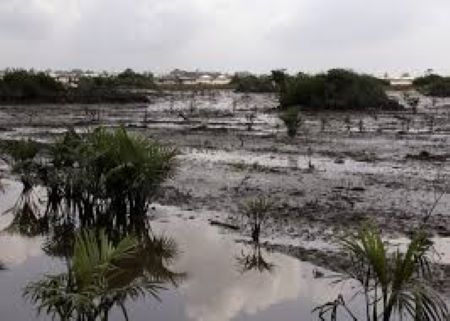The Niger Delta, a region rich in oil and gas resources, has endured decades of environmental degradation, economic marginalization, and human rights violations due to unchecked oil exploration and exploitation. Despite existing legal frameworks mandating Environmental and Human Impact Assessments (EHIA), enforcement remains weak or inconsistent.
By Nelson Nnanna Nwafor
Oil spills, gas flaring, contaminated water sources, and loss of livelihoods continue to plague communities, leading to deteriorating public health, displacement, and social unrest.
Problem Statement
Although Nigerian law requires Environmental Impact Assessments (EIA) prior to oil-related projects, many companies bypass or conduct these assessments superficially. Worse still, the human dimension — the direct and indirect impact on local communities — is often overlooked or inadequately addressed.
The absence of rigorous EHIA implementation in the Niger Delta contributes to:
Environmental pollution and ecosystem collapse
Health risks from toxic exposure and air pollution
Loss of agricultural land and fishing waters
Socio-economic instability and community disempowerment
Escalating conflicts between host communities and oil companies
Policy Gaps
- Weak Enforcement Mechanisms: Regulatory agencies like NESREA and NOSDRA are under-resourced and often influenced by political or corporate interests.
- Lack of Transparency: Many EIA reports are not publicly available or lack community participation during preparation.
- Exclusion of Human Impact Analysis: Current practices often ignore cultural, economic, and health impacts on host communities.
- Non-compliance: Penalties are Ineffective: Companies often operate with impunity, as penalties for EIA violations are minimal or unenforced.
Policy Recommendations
FENRAD urges the Nigerian government and relevant stakeholders to take the following actions:
- Mandate Full EHIA: Update and enforce legislation to require comprehensive Environmental and Human Impact Assessments before any oil-related project begins.
- Strengthen Regulatory Bodies: Equip NESREA, NOSDRA, and the Ministry of Environment with adequate funding, training, and independence to monitor and enforce compliance.
- Ensure Community Participation: Make community consultation a legal prerequisite for all assessments, ensuring that local voices are integrated into planning and review processes.
- Increase Transparency and Public Access: Create a centralized, publicly accessible database of all EIAs and EHIAs for ongoing and proposed projects in the Niger Delta.
- Enforce Sanctions for Non-compliance: Implement and enforce meaningful penalties — including suspension of operations — for companies that fail to comply with EHIA requirements.
Conclusion
For the Niger Delta to recover and thrive, environmental and human well-being must be placed at the core of extractive industry practices. Full implementation of EHIA is not just a legal necessity — it is a moral, social, and environmental imperative.
Nwafor is a seasoned activist and governance reformer, bridging grassroots advocacy with policy dialogue on both local and international platforms. He is a development consultant, climate change expert, and environmental rights campaigner.


